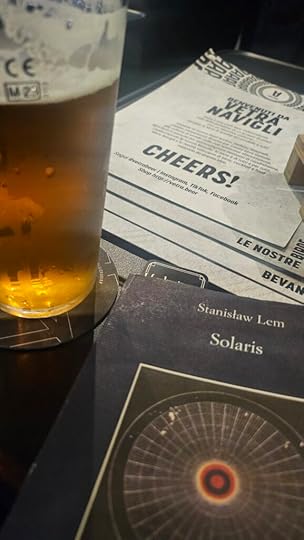Solaris
Some books demand to be read not only because they pioneered something new, but because, decades later, they remain unmatched in their brilliance. Stanisław Lem’s Solaris is one of those rare works that manages to be both the first of its kind and still the best at what it does.

First published in 1961 by the Polish author Stanisław Lem, Solaris quickly became a landmark in science fiction. Written during the Cold War, at a time when both the Soviet Union and the United States were fixated on conquering space, Lem turned his gaze elsewhere and – instead of rockets, moon landings, or interstellar empires – Solaris posed a question that remains as unsettling as ever: what happens when we encounter something truly alien, so different from us that we may never be able to understand it?
The book follows psychologist Kris Kelvin as he arrives at a research station orbiting the planet Solaris, which is covered entirely by a vast, sentient ocean. The ocean, in its incomprehensible intelligence, begins creating physical manifestations drawn from the subconscious of the humans studying it. Kelvin himself is confronted with the reappearance of his long-dead wife, a haunting presence that forces him to grapple not only with the mystery of the planet but with his own grief, guilt, and humanity.
Unlike much of the science fiction of its time, Solaris isn’t about technology as salvation or destruction. It’s about the limits of human understanding. Lem paints a picture of contact with an alien intelligence that refuses to fit into our frameworks of communication, science, or faith. The ocean of Solaris doesn’t give answers; it reflects us back at ourselves in ways that are often unbearable.This is why Solaris is more than a science fiction novel. It is also a psychological thriller and, ultimately, a philosophical meditation. The book unfolds in mirrored steps, escalating the tension until anguish becomes unavoidable. It leaves us with no clear resolution, only the creeping realization that the only thing we can truly study is ourselves.



